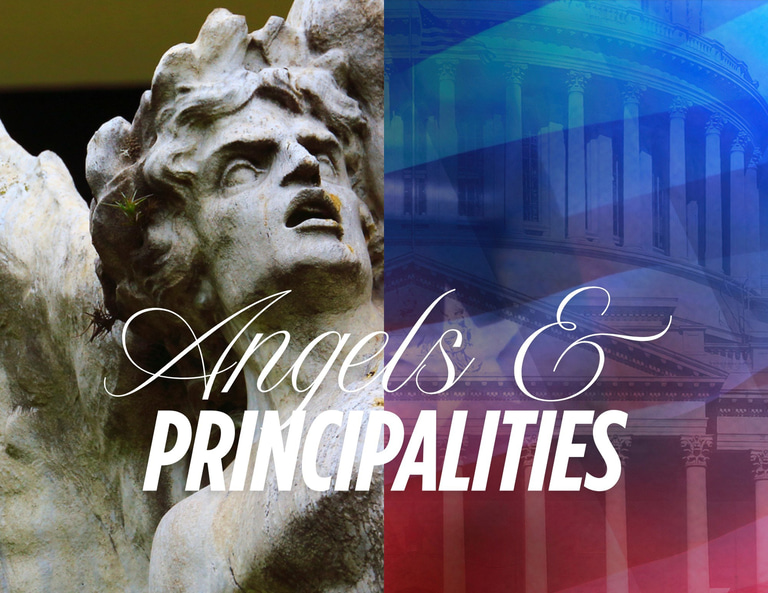Frank DuNN: Conversations at the junction of faith and politics
Wake, Woke, Woken
If I be "woke," make the most of it. Here's why.
Frank Dunn
5/22/20257 min read


One of the most hideous ironies of these times is the disparaging use of the term “Woke.” Others have said it their way. Now I’ll take my turn.
I was totally unaware of the term either as it was initially used in slang nor in its disparaging use until people like Ron DeSantis began using it as shorthand for all manner of things they didn’t like. In all the years I lived in Washington, DC, I never once heard the word “woke.” Suddenly it is on the lips of everybody opposed to anything perceived of as liberal, and that means anything that the right wing doesn’t approve of.
It won’t surprise you, readers, to know that I find all this irritating. But I’m learning to cool my heels and not just react because I’m irritated. I went to Wikipedia to find out just what is “Woke.” Fairly recent developments explain why I was caught flat-footed when it became derisive.
Woke is an adjective derived from African-American English used since the 1930s or earlier to refer to awareness of racial prejudice and discrimination, often in the construction stay woke.The term acquired political connotations by the 1970s and gained further popularity in the 2010s with the hashtag #staywoke. Over time, woke came to be used to refer to a broader awareness of social inequalities such as sexism and denial of LGBTQ rights. Woke has also been used as shorthand for some ideas of the American Left involving identity politics and social justice, such as white privilege and reparations for slavery in the United States.[1][2][3]
During the 2014 Ferguson protests, the phrase stay woke was popularized by Black Lives Matter (BLM) activists seeking to raise awareness about police shootings of African Americans. After being used on Black Twitter, the term woke was increasingly adopted by white people to signal their support for progressive causes. The term became popular with millennials and members of Generation Z. As its use spread beyond the United States, woke was added to the Oxford English Dictionary in 2017.[1]
By this definition, I would not be “woke,” or at least not a partisan of “wokeism” in every regard. I’m not a fan of “identity politics” the way the term is usually used, although I find it hard to imagine politics apart from the identities of voters and politicians. Nor am I happy when people are spurned because they don’t conform to the latest orthodoxy about gender labels or pronouns, for example.
But if “woke” means being in favor of social justice; if woke means affirming every person’s right to be treated with dignity and respect; if woke means equality of opportunity in the workplace regardless of gender or race or any other category; if woke is owning facts about wrongs in the past and making amends for those wrongs on personal and corporate levels, then I am unashamedly woke.
I find it ironic that a term like “woke” would be the one that people attack precisely because they prefer to be asleep, which is to say ignorant or oblivious to wrongs and inequalities that have been committed, or because they are oblivious to future dangers that imperil everybody including those who are “anti-woke.”
There is a whole season of the Christian Year that is dedicated to being awake, or, if you will, “woke.” It is called Advent. We’re half a year away from Advent; but like the message of every season and observance of the year, Advent’s theme is not something that comes on stage for several weeks and then disappears. Its purpose is precisely to shape our lives and awareness. The idea is that day by day, season by season, year in and year out we become increasingly formed and reformed in the truths of the gospel.
The message of Advent is announced with urgency on the First Sunday of Advent:
You know what time it is, how it is now the moment for you to wake from sleep. [Romans 13:11, from the second lesson for Advent 1, Year A, in the Revised Common Lectionary]
Jesus said to his disciples,... “Keep awake..., for you do not know on what day your Lord is coming. But understand this: if the owner of the household had known in what part of the night the thief was coming, he would have stayed awake and would not have let his house be broken into. Therefore, you must be ready....” [Matthew 24:42-44, from the Gospel for Advent 1, Year A, in the Revised Common Lectionary.]
On this and other Sundays in Advent, many congregations will sing the words of the familiar Bach prelude, “Wachet auf,” translated as “Sleepers, Wake,” in English, and literally means in German, “Wake up!”
Advent is often trivialized as “getting ready for Christmas.” Well, it is that; but more importantly it is about opening up to the reality of the coming Day of the Lord, fulfilled in the Incarnation of the Word of God in Jesus’ birth, and promised as a future event which will usher in a New Age, the Promised Day of God. The hymn writer Frederick Lucian Hosmer (1840-1929) describes it this way:
“The day in whose clear shining light all wrong shall stand revealed, when justice shall be clothed with might and every hurt be healed.”[2]
That’s just one example of a bevy of hymns that put into verse the hope for the reign of justice and peace.
The scriptures of both Testaments are full of references to the Coming Day of the Lord. The Day of Yahweh becomes in Christian thought identified with the Second Coming of Christ. Themes of righteousness, equity, peace, wholeness, and healing surround the notion of the fulfillment of the hope for a new age, the eschatological hope, which is the hope for the final stage of history. Those themes figure in both apocalyptic and prophetic writings, each having a unique slant on the end time, both having to do with the righting of wrongs, the establishment of truth, and the reign of righteousness.
Righteousness in the Bible doesn’t mean what the average churchgoing American might think. It has little to do with sexual purity, which is often seen as the quintessential quality of moral purity, whether or not it is actually desired by the people who are supposedly inspired to be “righteous.” Righteousness is best understood as right relationships, right proportions, people both individually and corporately standing in right relationships with each other, with God, and with creation.
Judgment, another theme that is part and parcel of the Advent message and deeply embedded in the hope for a just future, is not “judgmentalism” or “condemnation.” Rather, judgment is the revelation of truth, including truth about the quality of human behavior when compared with the standards of the Reign of God, itself best described as the “realm of right proportions and just relationships.”
There is no way to talk about this essential theme of “The Day” whose dawning we are called on to wake up and ready ourselves for without talking about these themes implicit in ways that societies are constructed and operate. The problem, of course, is that for centuries large numbers of Christians and great swaths of the churches have taken the eschatological hope enunciated by the prophets of Israel, by Jesus, and by the writers of the New Testament (notably the gospel writers and St. Paul) and converted all that into a reality that will be realized for individuals when they arrive in “heaven” which is not on earth but in or on another plane.
I’m not saying that an afterlife is not related to all these things; but I do mean that the key idea in the New Testament is not “going to heaven when you die” but rather heaven as being raised to live in union with the Risen Lord here and now and forever. And if “heaven” is a reward, what is it a reward for? It is a “reward” (I’d rather say “a gift”) that comes with living in union with the God whose Day we are called to wake up and anticipate —and spend our energy working and praying and giving ourselves to make present.
There’s no conceivable way of talking about Buddhism without talking about enlightenment. That’s what to be a buddha or a bodhisattva means: to be enlightened, to be awake and aware. The entire practice of meditation is about paying attention, simply noticing, being present, being aware, being awake. Sounds a lot like being “woke” to me.
Although the linguistic purist in me would be hard pressed to make a case for using “woke” as an adjective for being awake, it is a perfectly good word as the normal past tense of “wake.” Thus, “I wake up every morning; I woke up suddenly last night; I woke this morning to the sound of singing; I have waked up (have woken) in the past; I’m awake now.” And so on. Well, if you want to use “woke” as the colloquial past participle or adjective describing the same thing as being awake and aware, go right ahead. The point is not the grammar of the thing but the truth of it.
To have been woken, or to have woken, is, biblically speaking, to have grasped the idea—the hope—of a future towards which Earth is moving. That itself should be enough to shape our understanding of what is at stake in being “woke.” What kind of world do you want to see? Is what you want to see consonant with the dream of God? Is it the direction in which humanity is evolving? Evolution never means going backward. By its very nature the direction of evolution is towards the future. The only thing that holds humanity back is our pining for things that have passed, or are passing, away.
Think about it. Species that fail to adapt become extinct. It might take a long while, but it is predictable. Of course, species can become extinct for other reasons as well, such as being obliterated by predators. Don’t we have some agency in shaping the future, or at least trying to make life better for generations that follow us? Psychologist Erik Erikson called this drive the capacity for generativity. The Bible is replete with calls for human beings to wake up and see oppression and to make no peace with it. The future is not for us alone, but we are busy making it precisely because whatever we are doing has long-lasting consequences. That’s why it’s a bad idea to be asleep to the effects our decisions right now will likely produce.
So, what are we humans going to become? Martin Luther King, Jr., inspired by theologian Howard Thurman, said, “The arc of the moral universe is long, but it bends towards justice.” Everyone who has quoted that has likely added that the arc seems awfully long. Indeed it is. The issue is not how long the arc is but what it bends towards.
I believe that the arc bends towards those things like diversity; mutuality; interdependence; respect for the worth of every person; according dignity to all, regardless of social status, sexual profile, or any other aspect of personhood.
I believe the arc of justice bends towards a society of human beings who are woke enough to see that we are all one family, one humanity, one blood, one Body.
[1] Wikipedia, https://en.wikipedia.org/wiki/Woke#:~:text=Woke%20is%20an%20adjective%20derived,2010s%20with%20the%20hashtag%20%23staywoke.accessed on the internet May 18, 2025.
[2] The Hymnal 1982 (New York: Church Pension Fund, 1985), 615.
